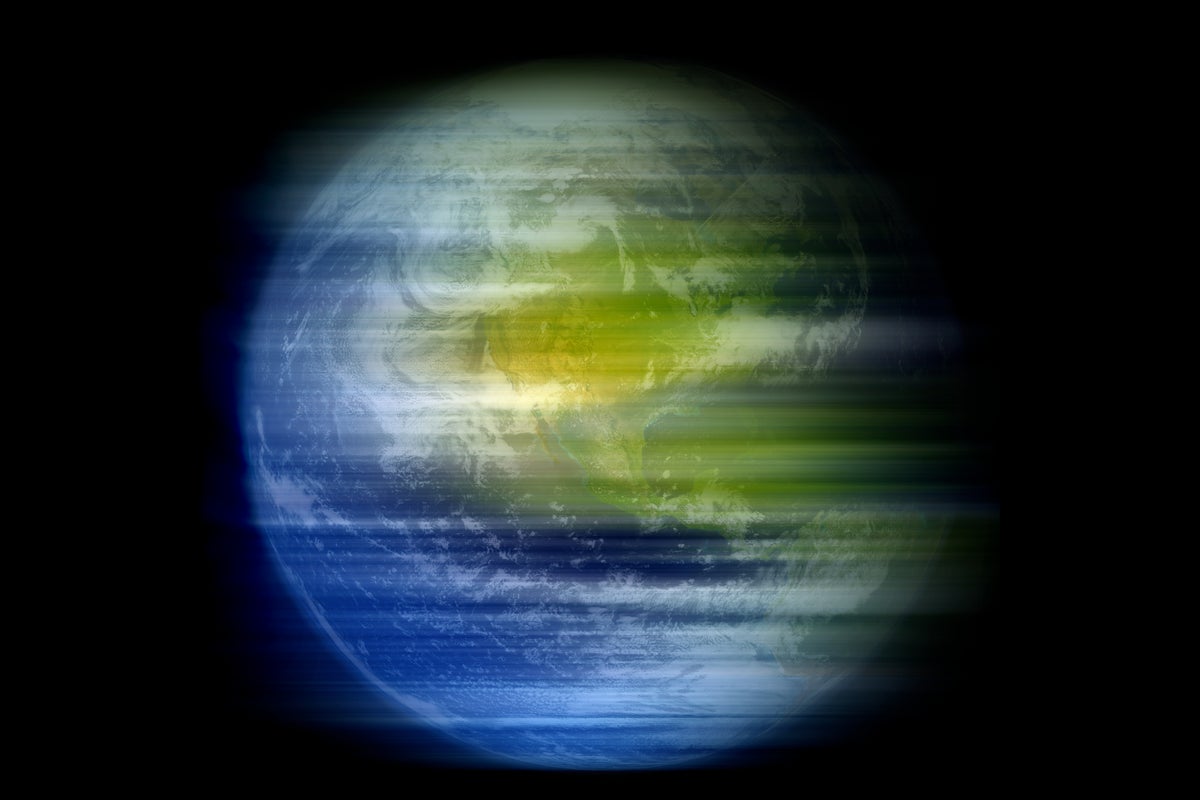T4K3.news
Earth's rotation speeds up again
Scientists now predict even shorter days on July 22 and August 5.

Scientists predict shorter days ahead as Earth's rotation speeds up unexpectedly.
Earth's rotation accelerates causing unexpected shortest days
On July 9, Earth experienced one of its shortest recorded days, clocking in at 1.3 milliseconds shorter than average. Now, scientists anticipate that July 22 and August 5 will break this record, with predictions of 1.38 and 1.51 milliseconds shorter. These changes relate to the moon being at its furthest point from Earth, reducing tidal effects that typically slow our planet's rotation. This recent acceleration is surprising, as Earth's rotation has usually been slowing over centuries. Racked with uncertainty, scientists have proposed multiple theories but have yet to pinpoint the cause of this rapid change.
Key Takeaways
"Nobody expected this. The cause of this acceleration is not explained."
Dr Leonid Zotov emphasizes the unexpected nature of Earth's rotating changes.
"I think we have reached the minimum. Sooner or later, Earth will decelerate."
Dr Zotov predicts a return to slower rotation after this unusual acceleration.
The unusual acceleration of Earth's rotation raises important questions about planetary dynamics. While fluctuations are natural, consistent short days challenge our understanding, particularly given that Earth is also experiencing long-term deceleration. The possibility of needing to subtract a leap second in 2029 hints at deeper systemic changes within our planet. Concerns regarding these shifts highlight the relationship between climate, planetary motion, and what lies beneath Earth's surface. The convergence of these factors suggests a critical period of study for scientists aiming to resolve this mystery.
Highlights
- Time never stops, not even for a second
- Our planet is in an unusual phase of speed
- July days in 2025 will set new records
- Changes in Earth's core may unlock mysteries
Shifts in Earth’s rotation raise concerns
The unexpected acceleration of Earth's rotation could indicate deeper geological changes. This is particularly sensitive as it may impact future timekeeping and is linked to climate considerations.
Understanding these changes may lead to insights about our planet's future.
Enjoyed this? Let your friends know!
Related News

Shortest day recorded tomorrow as Earth spins faster

Earth's rotation experiences troubling acceleration

Earth's rotation speeds up, affecting timekeeping

July 22 will be second-shortest day of the year

Earth may experience one of its shortest days

Scientists warn of disaster from Earth's spinning speed increase

Earth's days getting shorter impacts technology

Scientists warn of disruptions from Earth's faster rotation
